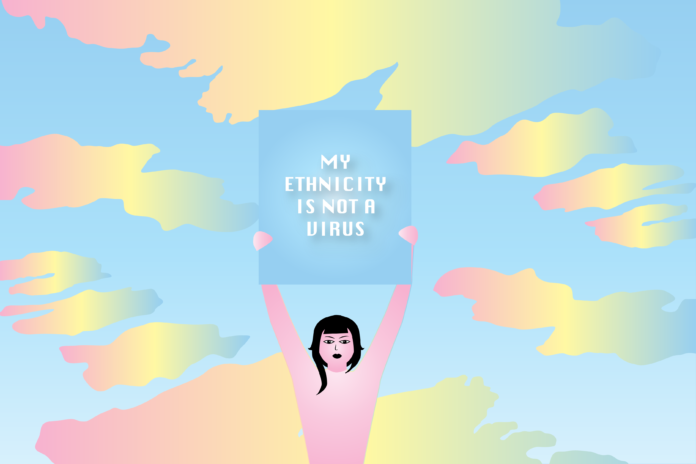A discussion about the history of anti-Asian racism and hate crimes during the COVID-19 pandemic and possible solutions to a racialized social system
The surge in xenophobia and anti-Asian racism in response to COVID-19 has led to a rise in microaggressions, racial profiling and hate violence against Asian Americans. Many of these acts of aggression were unprovoked, directed towards Asian Americans of all ages and are documented at stopaapihate.org. A recent increase in visibility of these incidents on social media has incited calls to action, including those listed in a statement from the UC Davis Asian American Studies (ASA) Department. Two professors and one faculty member weigh in on the subject.
Although hate crimes against Asian Americans have been rampant in the last year, Dr. Richard Kim, a professor in the Department of Asian American Studies, noted that attacks on this community were not unheard of before the COVID-19 pandemic. According to Kim, anti-Asian hate violence dates back to the mass arrival of Chinese immigrants to the U.S. in the 19th century.
“Much like the current situation, Chinese immigrants were often vilified based on widespread perceptions that they were carriers of disease and foreign invaders and thus threats to the well-being of American society,” Kim said. “These racialized perceptions were institutionalized in federal, state and local laws that specifically targeted the Chinese, as well as manifested through extralegal means such as violence, denigration and social ostracization.”
These sentiments fueled discrimination against other Asian groups that immigrated to the U.S. after the Chinese in the 20th century and continue to perpetuate violence today. A prime example of such is the rhetoric used by politicians and the media who have referred to COVID-19 as a “Chinese virus.” According to the ASA department’s statement, this racialization of the virus by the government has prompted Americans to redirect their frustration with the pandemic and lack of healthcare toward Asian Americans.
Ga Young Chung, an assistant professor in the Department of Asian American Studies, stated that it is important for the Asian American community to stand in solidarity with other marginalized groups and not to blame them for these hate crimes.
“The ongoing racial tension is not created by the Black, Indigenous, Muslim [communities] and people of color, but by the mainstream society through the social system and media representation,” Chung said. “We should not find a solution from increasing police appearance or criminalizing of the other community.”
Chung stated that the first step marginalized groups can take in solidarity with one another is urging the government to fix the racialized social system in the U.S. and provide community-based resources for equal access to education, housing and healthcare.
According to Chung, it is essential for students and community members to think critically and take action using insights from ethnic studies. Inspired by these studies, Chung is taking an approach that promotes racial and social justice through education and action. She is encouraging her students to engage in conversations surrounding COVID-19, media representation, issues of equity and their effects on the Asian American Pacific Island community.
“I have helped our students in ASA take from this challenging period the momentum necessary to re-visit legacies of racism and uplift our community’s voices,” Chung said.
The ASA faculty and staff emphasize their commitment to creating spaces where students can work towards solutions to these systemic problems, as well as safely discuss racism and stand in solidarity with other marginalized groups of people. One organization dedicated to the success of Asian Pacific Islander (API) students is the Strategic Asian Pacific Islander Retention Initiative, directed by Dr. Noel Salunga. According to Salunga, this initiative supports the holistic academic, personal and professional goals of students through collaborative efforts with other on-campus organizations.
On Feb. 26, the Strategic Asian Pacific Islander Retention Initiative collaborated with the Cross Cultural Center, Department of Asian American Studies, Student Health and Counseling Services (SHCS) and Student Recruitment and Retention Center to host an API Community Check-In. During this virtual event, students and faculty broke into small groups to discuss their feelings about the quarter, the pandemic and the hate crimes towards the API community.
“We’re trying to bring light to the dialogue and create a community of care so that we all can learn, talk about and heal from these issues,” Salunga said. “As a part of Student Affairs, I think our job is to provide those places of dialogue, empowerment and community connection in a virtual environment for students who want to talk about these issues.”
While many API students may be feeling overwhelmed by anti-Asian violence, Salunga said there are multiple angles from which one can approach this problem. One way is to self-educate, taking the time to learn about topics related to these attacks, such as the model minority myth or the history of racial xenophobic attacks on API communities. Another way is to talk to peers and family members about these incidents to strengthen one’s social support network. Finally, Salunga encourages students to make use of the resources on campus, such as SHCS, Student Affairs and academic advisors.
“Students are going through these processes in a pandemic environment, with online learning, financial issues, wanting to graduate and wanting to do well in academics, on top of dealing with these racially-charged issues,” Salunga said. “So it’s important to practice a healthy balance of being in spaces of community and being in spaces by yourself. I think having that healthy balance will keep you informed, educated and aware, but also allow yourself to rest and recover from exposure to these incidents.”
Written by: Liana Mae Atizado — features@theaggie.org





